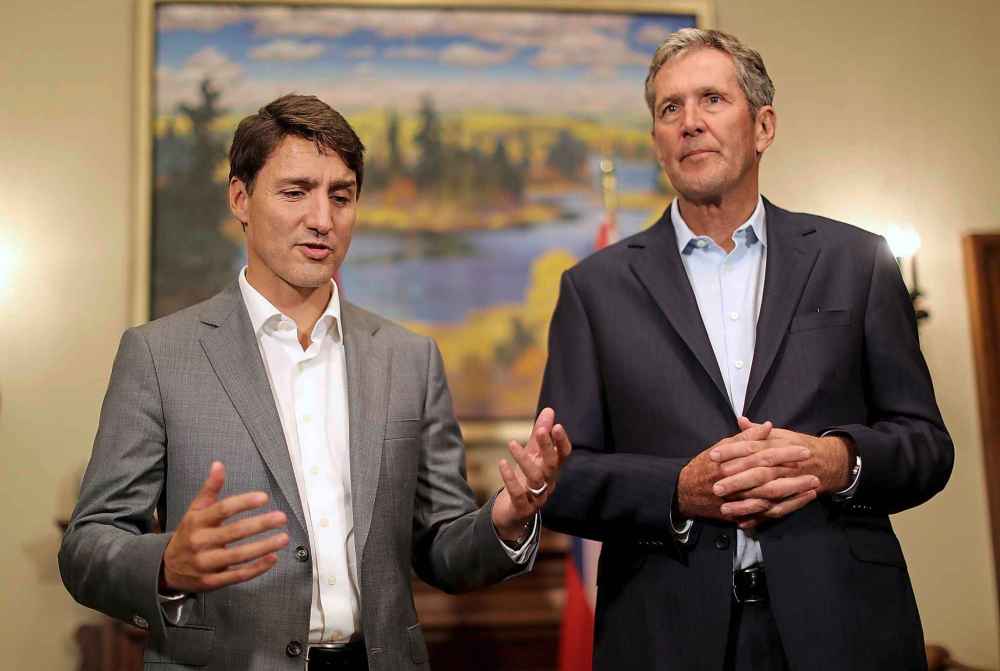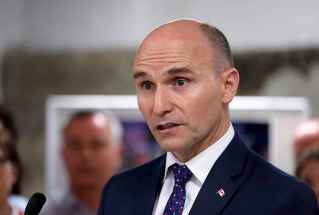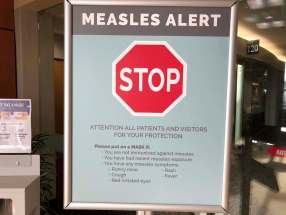Manitoba slow to pick up $1.6B in federal allocations
Read this article for free:
or
Already have an account? Log in here »
To continue reading, please subscribe:
Monthly Digital Subscription
$0 for the first 4 weeks*
- Enjoy unlimited reading on winnipegfreepress.com
- Read the E-Edition, our digital replica newspaper
- Access News Break, our award-winning app
- Play interactive puzzles
*No charge for 4 weeks then price increases to the regular rate of $19.00 plus GST every four weeks. Offer available to new and qualified returning subscribers only. Cancel any time.
Monthly Digital Subscription
$4.75/week*
- Enjoy unlimited reading on winnipegfreepress.com
- Read the E-Edition, our digital replica newspaper
- Access News Break, our award-winning app
- Play interactive puzzles
*Billed as $19 plus GST every four weeks. Cancel any time.
To continue reading, please subscribe:
Add Free Press access to your Brandon Sun subscription for only an additional
$1 for the first 4 weeks*
*Your next subscription payment will increase by $1.00 and you will be charged $16.99 plus GST for four weeks. After four weeks, your payment will increase to $23.99 plus GST every four weeks.
Read unlimited articles for free today:
or
Already have an account? Log in here »
Hey there, time traveller!
This article was published 26/02/2019 (2482 days ago), so information in it may no longer be current.
OTTAWA — The federal Liberals are accusing the Manitoba government of leaving millions of dollars of support for housing on the table in the latest dispute over cost-shared projects now amounting to at least $1.6 billion in limbo.
Meanwhile, Premier Brian Pallister’s office is disputing claims it is “refusing” anti-poverty cash and is demanding an apology.
On Tuesday, federal Families Minister Jean-Yves Duclos said talks are ongoing with Manitoba for its share of the multi-billion-dollar national housing strategy, but he said the province has been exceptionally slow.

“We’re making substantive progress with all other provinces and territories,” Duclos told the Free Press.
He said other provinces “might be a bit more agile, but the goals are the same, and we share them with the Manitoban government.”
Two days prior, Duclos’ parliamentary secretary, Adam Vaughan, told a national call-in radio show Manitoba was “refusing to take federal dollars,” due to a “clash of ideologies” over budgets and debt.
On Tuesday, Pallister’s spokesman said most provinces hadn’t signed Ottawa’s bilateral agreements on housing.
“It seems the MP spoke out of line and did not have the most recent update,” wrote David von Meyenfeldt. “He should apologize to Manitobans for his misplaced comments.”
The Free Press surveyed federal departments on outstanding funding not claimed by the Pallister government, which as of Tuesday amounts to at least $1.6 billion, not including the housing cash.
Unclaimed cash
OTTAWA — The federal Liberals have earmarked the following funds for Manitoba which have not yet been claimed; most allocations span a decade:
— $546 million: public transit under Phase 2 fund;
— $451 million: “green infrastructure” under Phase 2 fund;
— $61 million: community and cultural centres under Phase 2 fund;
— $112 million: rural and northern stream of Phase 2 fund;
— $399.6 million: mental health and home care parts of health accord;
— $67 million: Low Carbon Economy Fund;
— estimated $35 million to $163 million: possible share of national housing strategy.
The bulk of that comes from the second phase of the Liberals’ massive infrastructure spend — launched last year for the coming decade — which spans public transit to flood-mitigation projects to recreational centres.
Of a total $1.1 billion for the province, $85 million is earmarked for the fiscal year that starts April 1.
The provincial Liberals claimed Tuesday that Manitoba hadn’t formally submitted any applications for the Phase 2 funding, but the premier’s office said Ottawa has already approved a $8-million project and is reviewing one that costs $160 million. Phase 1 projects, such as the Interlake region flood-prevention channels, have preceded.
Meanwhile, none of Manitoba’s $67-million share of the Low-Carbon Economy Fund has been uncorked; the premier’s office said Manitoba had submitted five applications last year.
Manitoba is among a handful of provinces that haven’t signed Ottawa’s health accord, which means $399.6 million for mental health and home care can’t be allocated. The Pallister government spent months rebuffing the health accord before conceding to Ottawa last year, over its plan to slow the rise in health transfers.
Pallister told reporters Tuesday negotiations over mental health and home care cash are ongoing, but Ottawa tying that funding to curtailed health transfers is “not the way to have a stronger health-care system.”

The $1.6 billion in outstanding federal funding for Manitoba does not include the city’s funding disputes with the province. It also does not include funding allocations that have proceeded after delays, such as Ottawa’s “emergency treatment fund” for methamphetamine abuse, which the province agreed to match 10 months after Ottawa offered that cash.
As for the housing strategy, Ottawa refused to divulge how much money Manitoba could access because talks are ongoing. The number likely hinges on housing need and existing programs — but comparing the per-capita payments for the three provinces whose agreements have been made public, Manitoba could theoretically access between $35 million and $163 million in federal housing dollars.
Since Pallister took office three years ago, the Liberals have nudged his government to uncork provincial coffers in order to access federal cash Ottawa has made contingent on having the province, and sometimes cities, match part of the funding. Pallister has stressed he’s focused on getting Manitoba’s debt under control.
Vaughan doubled down on his comments about the province lagging behind on its housing cash.
“We’re having very similar challenges on some other fronts with Manitoba. Some provinces are more interested in picking a fight than solving a problem, and we’re here to negotiate,” he told the Free Press.
Eight months before the federal election, the Liberals are getting worried they’ll have little to show in Manitoba after doubling down on federal deficits for infrastructure and anti-poverty programs.
The premier suggested the Liberals were facing “a challenge right now getting their own house in order,” likely referring to the ongoing SNC-Lavalin Group Inc. scandal.
He said talks over housing cash would proceed “in the appropriate way — and not on call-in shows.”
— with files from Larry Kusch
dylan.robertson@freepress.mb.ca
History
Updated on Tuesday, February 26, 2019 8:26 PM CST: Adds when second phase of infrastructure spend started









